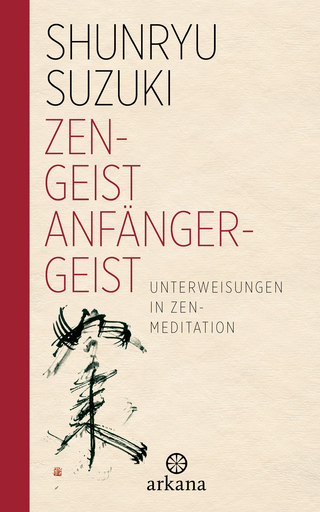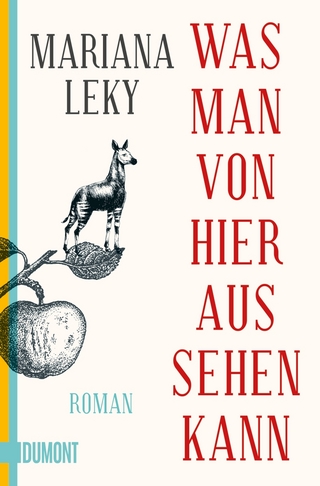
Critical Readings on Pure Land Buddhism in Japan (3 vols.)
Brill (Verlag)
978-90-04-40140-2 (ISBN)
Galen D. Amstutz (Ph.D. Religion and East Asian Studies 1992, Princeton University) has served in a variety of roles including librarian, ESL teacher, Buddhist minister, college professor in the United States, Germany and Japan, translator, journal editor, and administrator at Harvard University’s Reischauer Institute of Japanese Studies. He is currently an adjunct instructor at the Institute of Buddhist Studies (affiliate of Graduate Theological Union, Berkeley, California) and publishes on Pure Land Buddhism, starting with Interpreting Amida (1997).
Introduction: Brill Critical Readings on Pure Land Buddhism in Japan
part 1: Useful Overarching Perspectives
1 Buddhism as a Religion of Hope: Observations on the “Logic” of a Doctrine and Its Foundational Myth
Luis O. Gómez
2 Pure Land Buddhism as an Alternative Mārga
Mark L. Blum
part 2: Early Presence in Japan
3 The Development of Mappō Thought in Japan (I)
Michele Marra
4 The Development of Mappō Thought in Japan (II)
Michele Marra
5 The Growth of Pure Land Buddhism in the Heian Period
Robert F. Rhodes
6 Ōjōyōshū, Nihon Ōjō Gokuraku-ki, and the Construction of Pure Land Discourse in Heian Japan
Robert F. Rhodes
7 With the Help of “Good Friends”
Deathbed Ritual Practices in Early Medieval Japan
Jacqueline I. Stone
part 3: Turn to the Nembutsu as the Sole Solution
8 Hōnen on Attaining Pure Land Rebirth: the Selected Nenbutsu of the Original Vow
Allan A. Andrews
9 Hōnen and Popular Pure Land Piety: Assimilation and Transformation
Allan A. Andrews
10 Socio-Economic Impacts of Hōnen’s Pure Land Doctrines: an Inquiry into the Interplay between Buddhist Teachings and Institutions
Martin Repp
part 4: Shinran’s More Radical Turn to the Enlightenment Gift as an Involuntary Emergent Property
11 Faith: Its Arising
Alfred Bloom
12 “Rely on the Meaning, Not on the Words”
Shinran’s Methodology and Strategy for Reading Scriptures and Writing the Kyōgyōshinshō
Eisho Nasu
part 5: Formation of a Major Institution: Honganji and its Negotiations with Popular Consciousness
13 From Inspiration to Institution
The Rise of Sectarian Identity in Jōdo Shinshū
James C. Dobbins
14 Shin Buddhist Attitudes towards the Kami
From Shinran to Rennyo
Robert F. Rhodes
15 Popular Pure Land Teachings of the Zenkōji Nyorai and Shinran
Eisho Nasu
16 Stand by Your Founder
Honganji’s Struggle with Funeral Orthodoxy
Mark L. Blum
17 Steadied Ambiguity: the Afterlife in “Popular” Shin Buddhism
Galen Amstutz
18 Ambivalence Regarding Women and Female Gender in Premodern Shin Buddhism
Galen Amstutz
part 6: The Alternative Field: Pure Land Striven for in This World
19 Ippen and Pure Land Buddhist Wayfarers in Medieval Japan
James H. Foard
20 The Shingon Subordinating Fire Offering for Amitābha, “Amida Kei Ai Goma”
Richard K. Payne
21 Breath of Life: the Esoteric Nembutsu
James H. Sanford
22 Jōkei and the Rhetoric of “Other-Power” and “Easy Practice” in Medieval Japanese Buddhism
James L. Ford
part 7: Pure Land Fellowships in War and Peace
23 The Life of Rennyo
A Struggle for the Transmission of Dharma
Yasutomi Shin’ya
24 The Dilemma of Religious Power
Honganji and Hosokawa Masamoto
Michael Solomon
25 Shin Buddhism and Burakumin in the Edo Period
Galen Amstutz
26 Precepts in Japanese Pure Land Buddhism
The Jōdoshū
James C. Dobbins
27 Exemplary Lives
Form and Function in Pure Land Sacred Biography
Michael Bathgate
28 Preaching as Performance
Notes on a Secretive Shin Buddhist Sermon
Clark Chilson
29 The Nianfo in Ōbaku Zen: a Look at the Teachings of the Three Founding Masters
James Baskind
30 Extreme Asceticism, Medicine and Pure Land Faith in the Life of Shuichi Munō (1683–1719)
Paul Groner
part 8: Meiji and Modernity: Political Resettlement and Realignment, Moments of Intellectual Hybridization, Emigration, Collaboration, Postwar Progressivism, Lingering Conservatism
31 Shin Buddhism in the Meiji Period
Mark L. Blum
32 Against Buddhist Unity: Murakami Senshō and His Sectarian Critics
Ryan Ward
33 The Honganji: Guardian of the State (1868–1945)
Minor L. Rogers and Ann T. Rogers
34 Shinran’s Thought in Present-Day Japan
Gerhard Schepers
35 Propagation, Accommodation and Negotiating Social Capital: Jōdo Shinshū Responses to Contemporary Crises
Jørn Borup
36 Family Temples and Religious Learning in Contemporary Japanese Buddhism
Jessica Starling
37 Shin Buddhist Studies and Secularization
Mitsuya Dake
38 Amida and Pure Land within a Contemporary Worldview: From Shinran’s Literal Symbolism to Figurative Symbolism
Kenneth K. Tanaka
39 The Medieval and the Modern in Shin Buddhism
James C. Dobbins
40 Rethinking Acculturation in the Postmodern World
Michihiro Ama
41 Nenbutsu and Meditation: Problems with the Categories of Contemplation, Devotion, Meditation, and Faith
Lisa Grumbach
Index of Personal Names
| Erscheinungsdatum | 17.12.2019 |
|---|---|
| Reihe/Serie | Critical Readings |
| Verlagsort | Leiden |
| Sprache | englisch |
| Maße | 155 x 235 mm |
| Gewicht | 1 g |
| Themenwelt | Geisteswissenschaften ► Religion / Theologie ► Buddhismus |
| ISBN-10 | 90-04-40140-7 / 9004401407 |
| ISBN-13 | 978-90-04-40140-2 / 9789004401402 |
| Zustand | Neuware |
| Haben Sie eine Frage zum Produkt? |
aus dem Bereich


